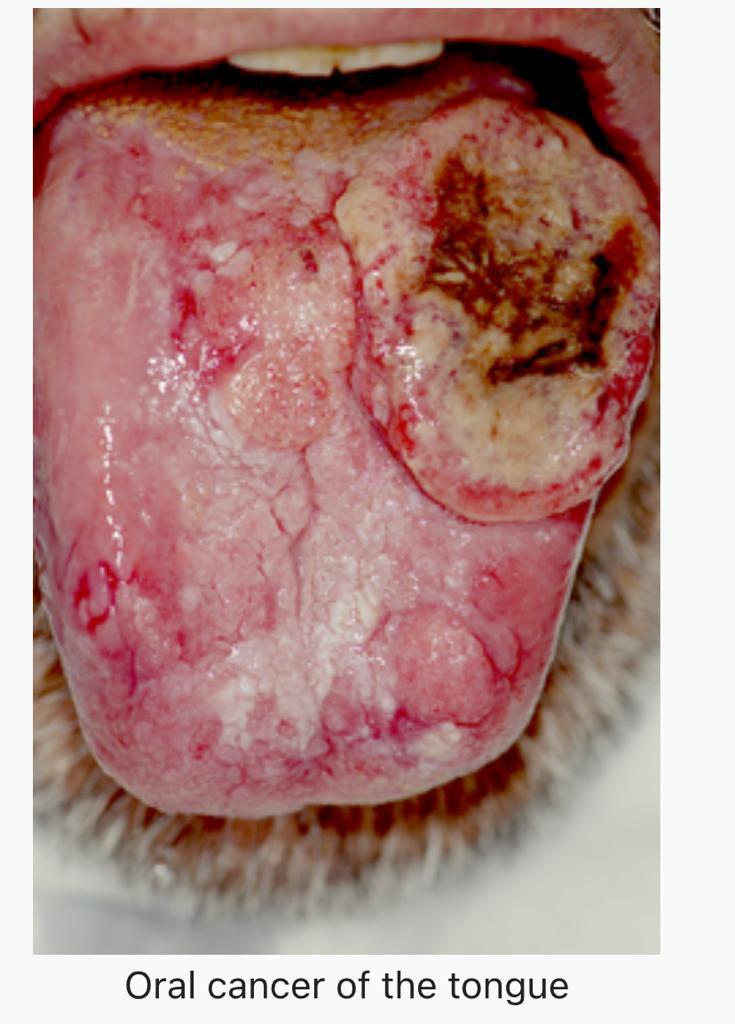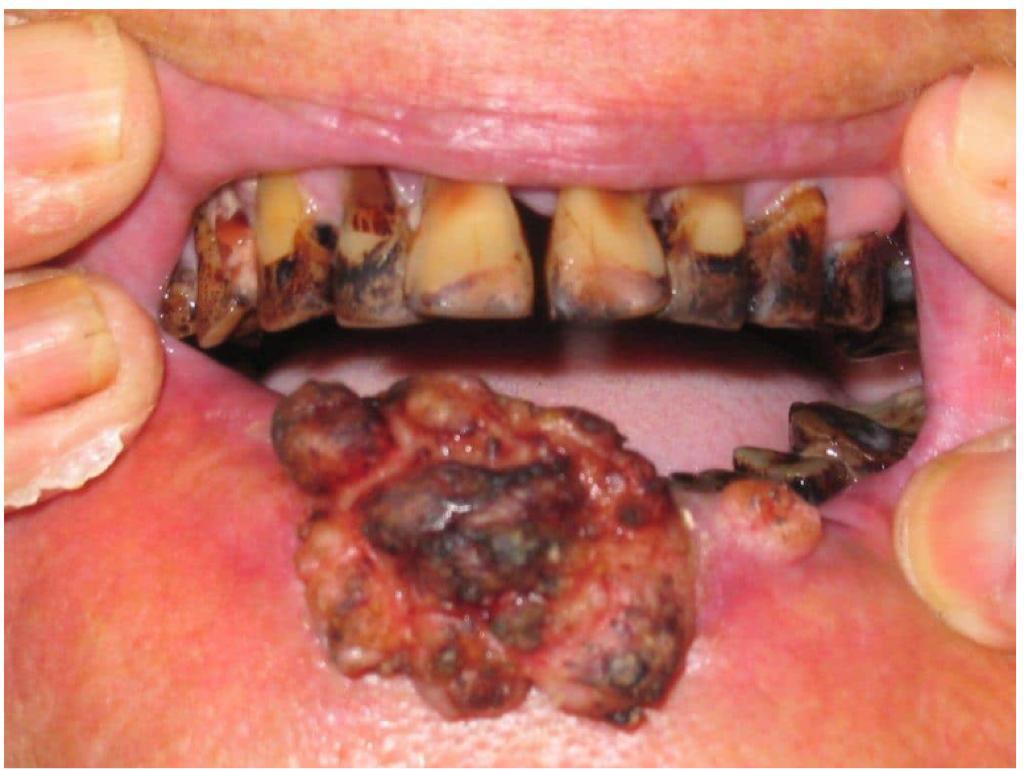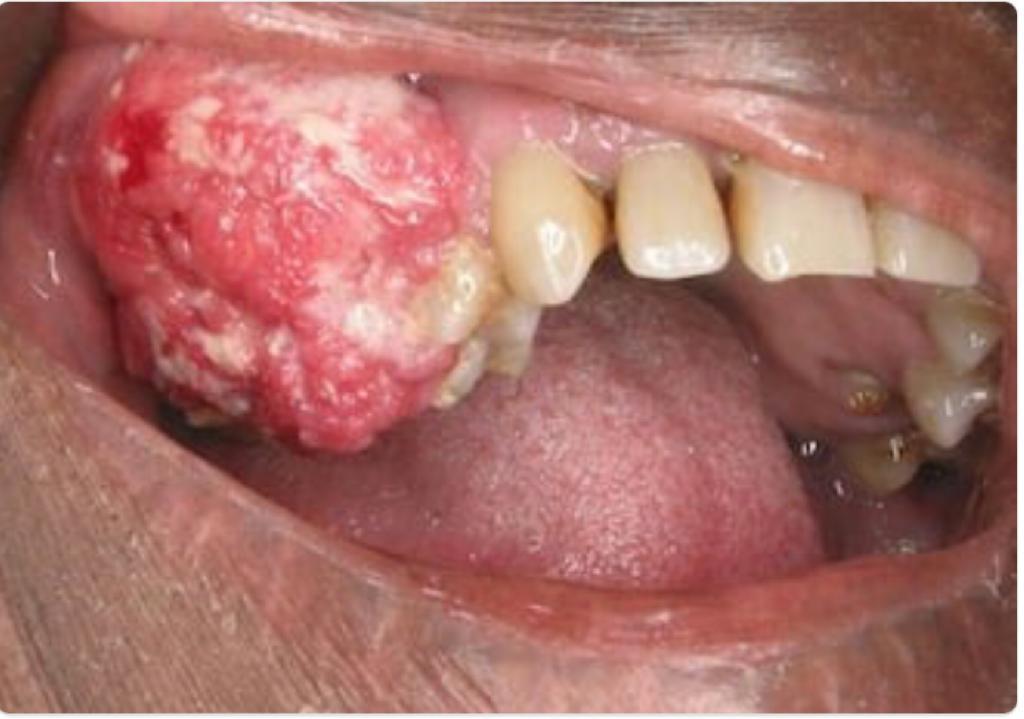


Mouth cancer, also known as oral cancer, is where a tumour develops in a part of the mouth. It may be on the surface of the tongue, the inside of the cheeks, the roof of the mouth (palate), the lips or gums.
Tumours
can also develop in the glands that produce saliva, the tonsils at the back of the mouth, and the part of the throat connecting your mouth to your windpipe (pharynx). However, these are less common.
Symptoms of mouth cancer
The symptoms of mouth cancer include:
- mouth ulcers that are painful and do not heal within several weeks
- unexplained, persistent lumps in the mouth or the neck that do not go away
- unexplained loose teeth or sockets that do not heal after extractions
- unexplained, persistent numbness or an odd feeling on the lip or tongue
- sometimes, white or red patches on the lining of the mouth or tongue These can be early signs of cancer, so they should also be checked
- changes in speech, such as a lisp
Types of mouth cancer
Mouth cancer is categorised by the type of cell the cancer (carcinoma) starts to grow in.
Squamous cell carcinoma is the most common type of mouth cancer, accounting for 9 out of 10 cases.
Squamous cells are found
in many areas of the body, including the inside of the mouth and in the skin.
Less common types of mouth cancer include:
- adenocarcinoma, which is cancers that develop inside the salivary glands
- sarcoma, which grows from abnormalities in bone, cartilage, muscle or other tissue
- oral malignant melanoma, where cancer starts in the cells that produce skin pigment or colour (melanocytes). These appear as very dark, mottled swellings that often bleed
- lymphoma, which grows from cells usually found in lymph glands, but they can also grow in the mouth
What causes mouth cancer?
Things that increase your risk of developing mouth cancer include:
- smoking or using tobacco in other ways, such as chewing tobacco
- drinking alcohol
- infection with the human papilloma virus HPV) - HPV is the virus that causes genital warts
Treating mouth cancer
There are three main treatment options for mouth cancer, including:
- surgery to remove the cancerous cells, along with a tiny bit of the surrounding normal tissue or cells to ensure the cancer is completely removed
- radiotherapy - where beams of radiation are directed at the cancerous cells
- chemotherapy where powerful medicines are used to kill cancerous cells

